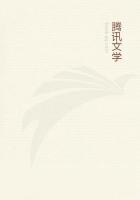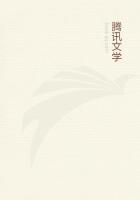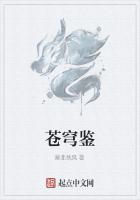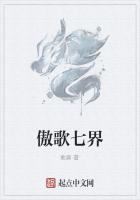Together we withstood the Republicans and abolitionists, when, a second time, they made us the most solemn promise of earnest labor for our enfranchisement, when the slaves were safe beyond a peradventure. They never redeemed their promise made during the War, hence, when they urged us to silence in the Kansas campaign, we would not for a moment entertain the proposition. The women generally awoke to their duty to themselves. They had been deceived once and could not be again. If the leaders of the Republican and abolition camps could deceive us, whom could we trust?
Again we were urged to be silent on our rights, when the proposition to take the word "white" out of the New York Constitution was submitted to a vote of the people of the State, or, rather, to one-half the people, as women had no voice in the matter. Again we said "No, no, gentlemen! if the 'white' comes out of the Constitution, let the 'male' come out also.
Women have stood with the negro, thus far, on equal ground as ostracized classes, outside the political paradise; and now, when the door is open, it is but fair that we both should enter and enjoy all the fruits of citizenship.
Heretofore ranked with idiots, lunatics, and criminals in the Constitution, the negro has been the only respectable compeer we had; so pray do not separate us now for another twenty years, ere the constitutional door will again be opened."
We were persistently urged to give all our efforts to get the word "white" out, and thus secure the enfranchisement of the colored man, as that, they said, would prepare the way for us to follow. Several editors threatened that, unless we did so, their papers should henceforth do their best to defeat every measure we proposed. But we were deaf alike to persuasion and threats, thinking it wiser to labor for women, constituting, as they did, half the people of the State, rather than for a small number of colored men; who, viewing all things from the same standpoint as white men, would be an added power against us.
The question settled in Kansas, we returned, with George Francis Train, to New York. He offered to pay all the expenses of the journey and meetings in all the chief cities on the way, and see that we were fully and well reported in their respective journals. After prolonged consultation Miss Anthony and I thought best to accept the offer and we did so. Most of our friends though it a grave blunder, but the result proved otherwise. Mr. Train was then in his prime朼 large, fine-looking man, a gentleman in dress and manner, neither smoking, chewing, drinking, nor gormandizing. He was an effective speaker and actor, as one of his speeches, which he illustrated, imitating the poor wife at the washtub and the drunken husband reeling in, fully showed. He gave his audience charcoal sketches of everyday life rather than argument. He always pleased popular audiences, and even the most fastidious were amused with his caricatures. As the newspapers gave several columns to our meetings at every point through all the States, the agitation was wide-spread and of great value. To be sure our friends, on all sides, fell off, and those especially who wished us to be silent on the question of woman's rights, declared "the cause too sacred to be advocated by such a charlatan as George Francis Train." We thought otherwise, as the accession of Mr. Train increased the agitation twofold. If these fastidious ladies and gentlemen had come out to Kansas and occupied the ground and provided "the sinews of war," there would have been no field for Mr. Train's labors, and we should have accepted their services. But, as the ground was unoccupied, he had, at least, the right of a reform "squatter" to cultivate the cardinal virtues and reap a moral harvest wherever he could.
Reaching New York, Mr. Train made it possible for us to establish a newspaper, which gave another impetus to our movement. The Revolution, published by Susan B. Anthony and edited by Parker Pillsbury and myself, lived two years and a half and was then consolidated with the New York Christian Enquirer, edited by the Rev. Henry Bellows, D. D. I regard the brief period in which I edited the Revolution as one of the happiest of my life, and I may add the most useful. In looking over the editorials I find but one that I sincerely regret, and that was a retort on Mr. Garrison, written under great provocation, but not by me, which circumstances, at the time, forbade me to disown. Considering the pressure brought to bear on Miss Anthony and myself, I feel now that our patience and forbearance with our enemies in their malignant attacks on our good name, which we never answered, were indeed marvelous.
We said at all times and on all other subjects just what we thought, and advertised nothing that we did not believe in. No advertisements of quack remedies appeared in our columns. One of our clerks once published a bread powder advertisement, which I did not see until the paper appeared; so, in the next number, I said, editorially, what I thought of it. I was alone in the office, one day, when a man blustered in. "Who," said he, "runs this concern?" "You will find the names of the editors and publishers,"
I replied, "on the editorial page." "Are you one of them?" "I am," I replied.
"Well, do you know that I agreed to pay twenty dollars to have that bread powder advertised for one month, and then you condemn it editorially?"
"I have nothing to do with the advertising; Miss Anthony pays me to say what I think." "Have you any more thoughts to publish on that bread powder?"
"Oh, yes," I replied, "I have not exhausted the subject yet." "Then," said he, "I will have the advertisement taken out. What is there to pay for the one insertion?" "Oh, nothing," I replied, "as the editorial probably did you more injury than the advertisement did you good." On leaving, with prophetic vision, he said, "I prophesy a short life for this paper; the business world is based on quackery, and you cannot live without it." With melancholy certainty, I replied, "I fear you are right."

